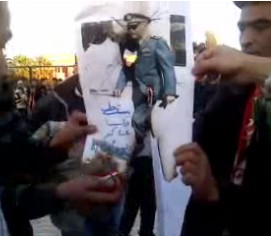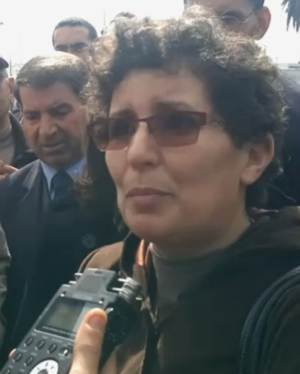|
Morocco Politics | Human rights Calls for new Morocco protests on Sunday
After mass demonstrations on Sunday 20 February, the Moroccan pro-democracy protest movement seemed to lose momentum last weekend. To some degree, the calls for protests for both Saturday and Sunday (26 and 27 February) had caused confusion, as an unclear and uncoordinated protest leadership was unable to communicate to Morocco's many cities when the "big" protest was to be held.
Meanwhile, sources among the protest movement within Morocco told afrol News about a "climate of fear and intimidation" spreading in the country. Especially in the north of the kingdom, where the gravest confrontations between protesting youths and police forces were noted, had been "scared into silence," the sources added. But the 20 February movement remains alive and motivated. Especially the AMDH and the Moroccan Forum for Truth and Justice (FMVJ) say they are determined to keep on protesting for more democracy and human rights in the kingdom. In a letter to Interior Minister Taieb Cherqaoui, the two human rights groups now demand a credible investigation into police violence during the 20 February and following protests. AMDH President Khadija Riyadi herself was beaten and hospitalised by "pro-government thugs" on 20 February in Rabat. In the letter to Minister Cherqaoui, the human rights groups demand the immediate freeing of the many protesters arrested in Rabat, Kenitra and other Moroccan cities. AMDH and FMVJ threaten to break the ongoing dialogue with the Ministry, which has served the regime to legitimise its claims that progress is being made regarding the human rights situation in Morocco. But for now, the Interior Ministry remains stubborn in its attempts to repress further protests, not allowing any of the planned marches. Reports from the Moroccan city of Fez today say that five students have been sentenced to 3 and 4 years of prison for "participating in an unauthorised demonstration and theft and destruction of property and disruption of the public order." Around 10 more students are held by the police in Fez, awaiting trial. Similar trials are being held all over Morocco. The AMDH meanwhile maintains its calls for protests every Sunday to the keep the protest movement warm. Human rights activists will gather in central Rabat on Sunday 5 March. Exiled Moroccans meanwhile are calling for "a break" in order to regroup, calling for renewed nation-wide protests on Sunday 20 March through a new Facebook campaign. By staff writers © afrol News - Create an e-mail alert for Morocco news - Create an e-mail alert for Politics news - Create an e-mail alert for Human rights news
On the Afrol News front page now
|
front page
| news
| countries
| archive
| currencies
| news alerts login
| about afrol News
| contact
| advertise
| español
©
afrol News.
Reproducing or buying afrol News' articles.
You can contact us at mail@afrol.com









